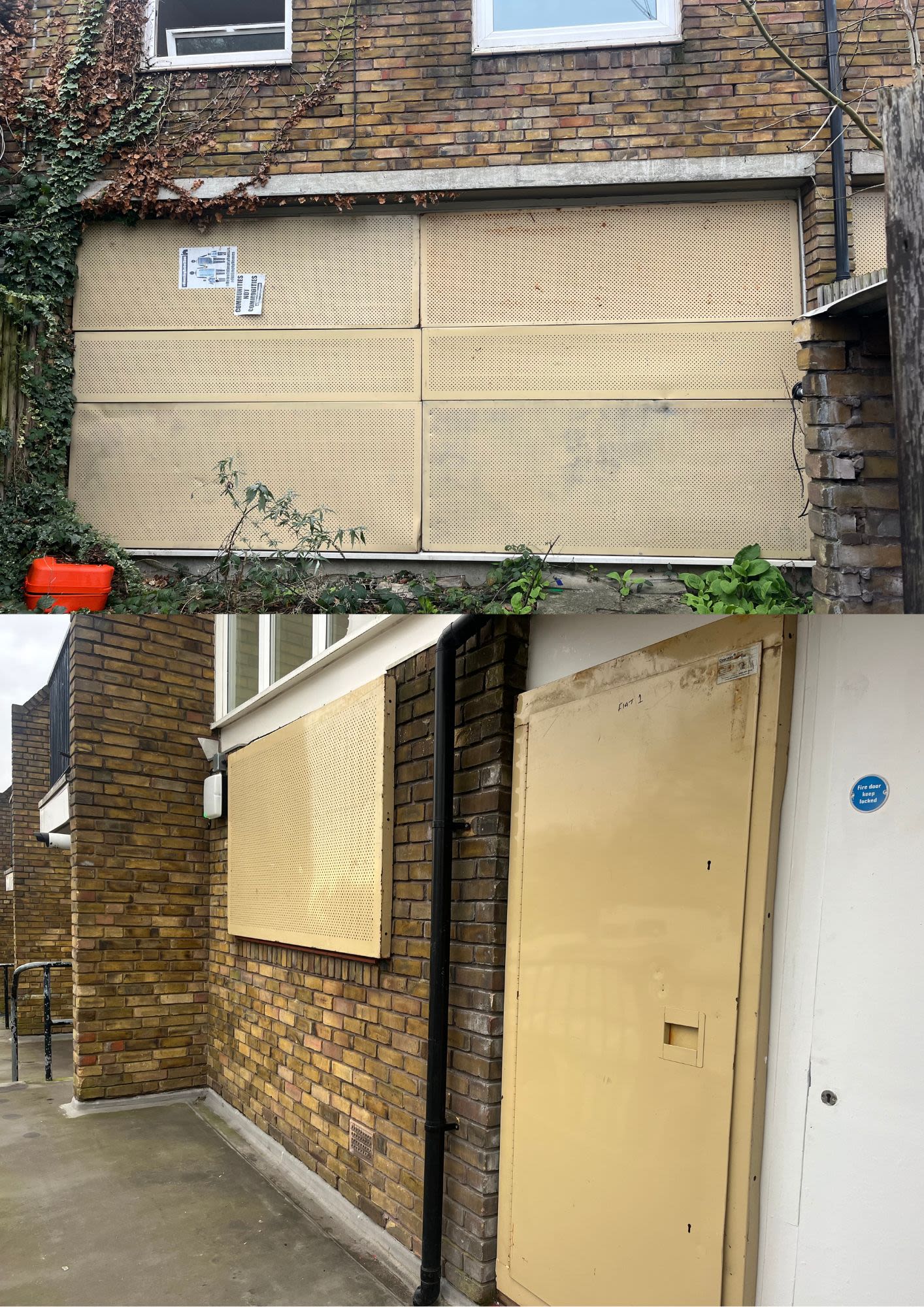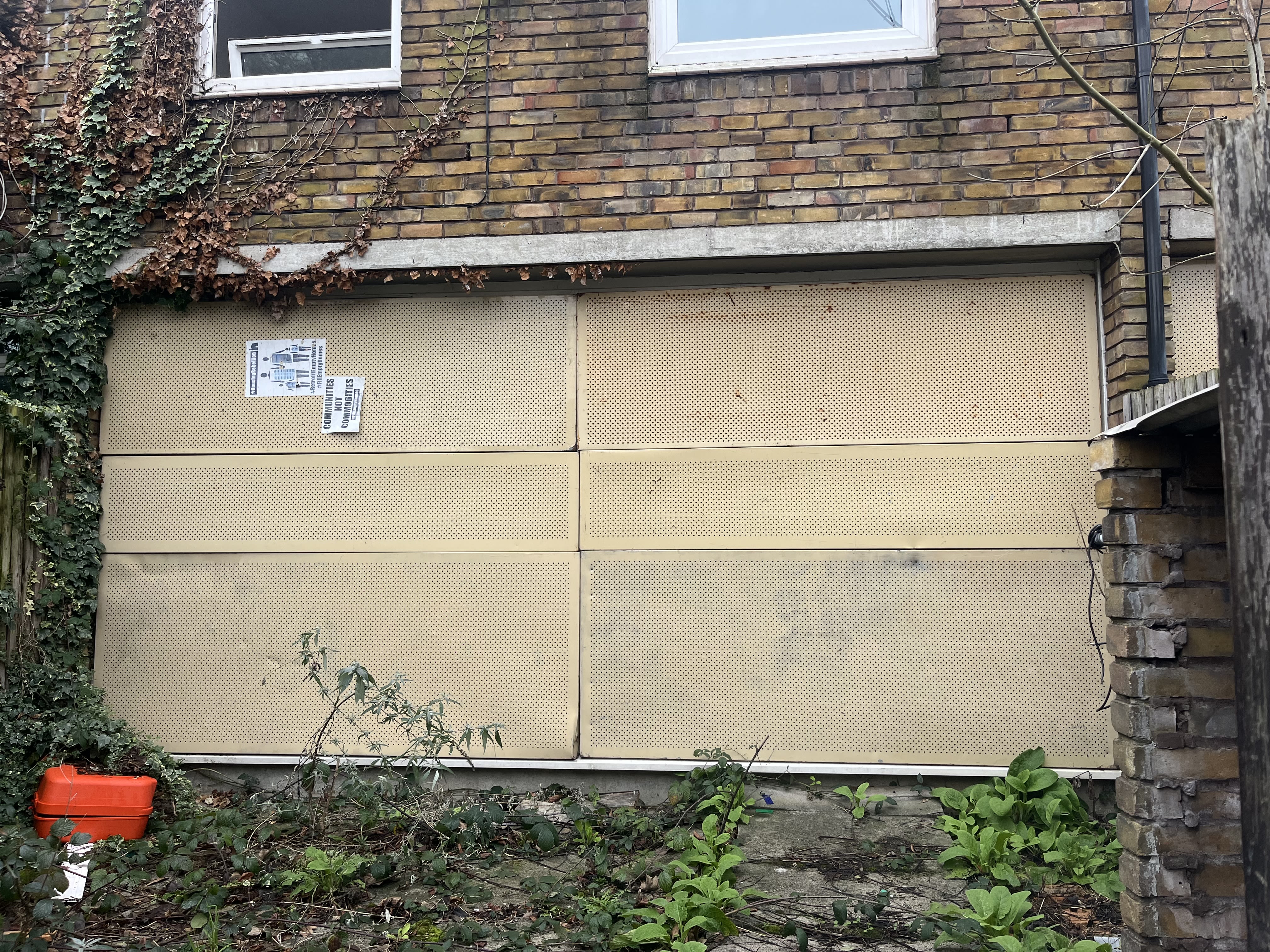Lambeth's Empty Homes
Words and pictures by Maddison Brown
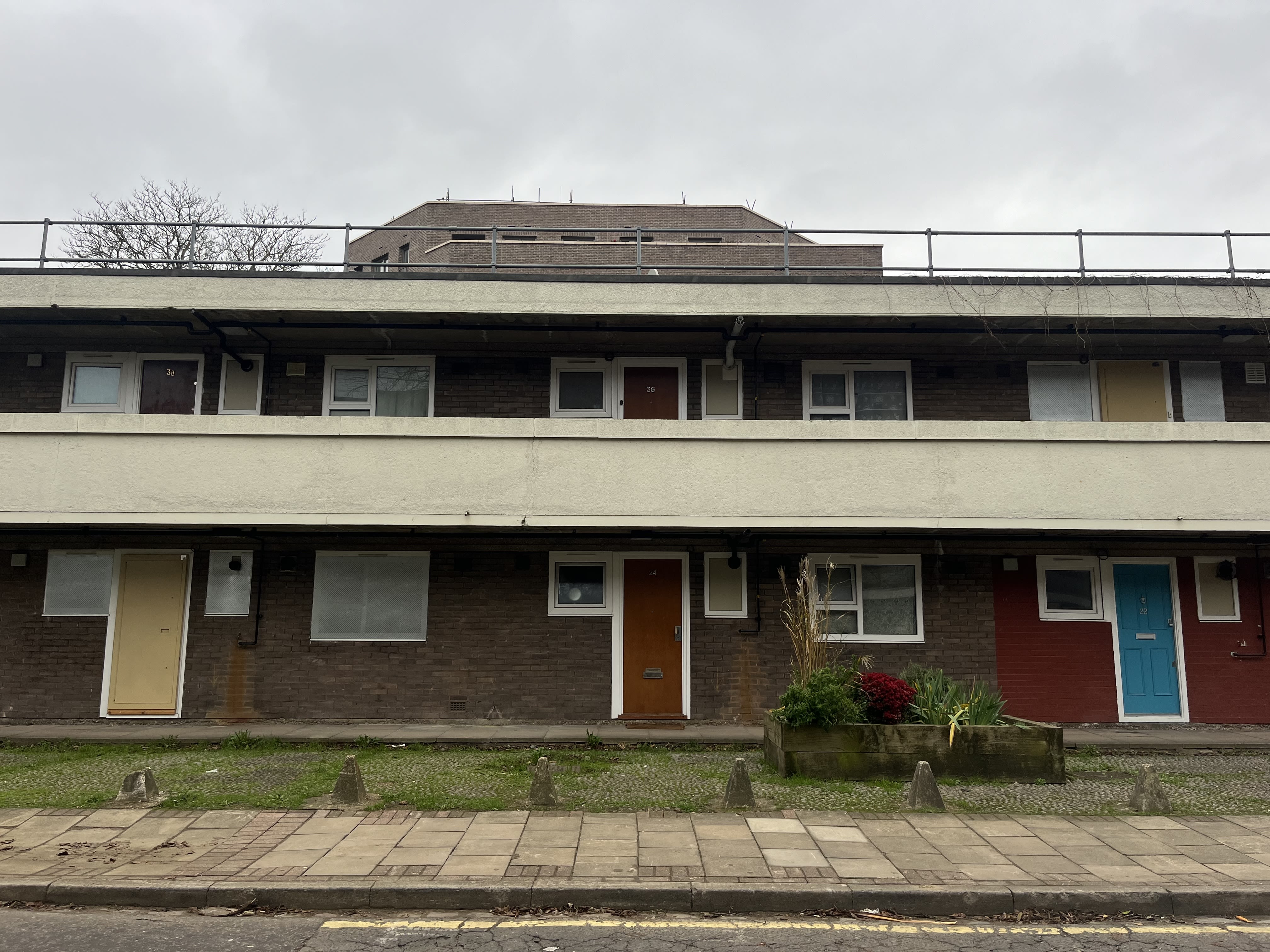
Private renters across six estates are fighting Lambeth Council's attempts to evict them.
Over 160 households have received section 21 "no fault" eviction notices, according to an open letter published by tenants, and many of them have nowhere else to go.
Despite this, more than 700 council-owned properties stand empty in Lambeth, Freedom of Information requests sent by tenants to the council reveal.
The estates, which are all part of the council's Estate Regeneration Programme, include Central Hill, Fenwick, Cressingham Gardens, Knight's Walk, South Lambeth, and Westbury.
The first phases of regeneration have been completed on Westbury, South Lambeth, and Knight's Walk estate, delivering 80 new social homes in total.
Regeneration across the remaining estates has been paused by the council, and all three are currently in options appraisal, meaning the council is yet to confirm plans for demolition.
In response to claims from tenants, a Lambeth Council spokesperson confirmed over 4,700 families are currently living in "unsuitable and expensive" temporary accommodation.
They said consultations with tenants show proposals will have an overall positive impact for these households.

Timeline of Lambeth Council's Six Regeneration Estates
2012 - 2016
Estate regeneration begins
Lambeth's Estate Regeneration Program is set up in 2012 to redevelop six estates across Lambeth to increase housing density in response to urgent housing need.
These estates are Fenwick, Cressingham Gardens, Central Hill, South Lambeth, Westbury, and Knight's Walk.
Residents resists these plans, and community campaigns such as 'Save Central Hill' and 'Save Cressingham Gardens' are set up in 2015.
2017 - 2022
Homes for Lambeth
Homes for Lambeth is set up in 2017 to deliver the Estate Regeneration Programme.
Lambeth Council goes ahead with "demolition and rebuilding" on three estates: Cressingham Gardens, Central Hill, and Fenwick.
Redevelopments on Knight's Walk, Westbury, and South Lambeth begin in 2018, but developments on Fenwick Estates are stalled due to a withdrawal of funding.
The first stages of regeneration in Westbury and Knight's Walk are completed in 2021.
Central Hill's Truslove House is demolished.
2022
The Kerslake Review
The Kerslake Review recommends that Homes for Lambeth is brought back into the council.
It highlights that the delivery on rebuilding of three estates: Central Hill, Fenwick, and Cressingham Gardens, is too slow.
The review found that Homes for Lambeth had only begun the construction of 65 total homes.
2023
Redevelopment is paused
Lambeth Council announces that redevelopments on three estates: Fenwick, Central Hill, and Cressingham Gardens, are to be paused.
Lambeth Council ends all Assured Shorthold Tenancy holders on Lambeth's regeneration estates.
2024
Section 21s are issued
In February, all Homes for Lambeth tenants receive an email stating that they must move out when their tenancy ends, with no option to move onto a rolling contract.
Cressingham Gardens, Fenwick, and Central Hill enter "options appraisal".
The Labour Party's 2024 manifesto includes a commitment to abolishing section 21 "no-fault" eviction notices.
Homes for Lambeth tenants publish their open letter to Lambeth Council.
2025
The future of regeneration
Lambeth Council announced plans to issue section 21 eviction notices to AST holders in January.
There are plans for the Renters' Rights Bill to be passed in the Spring, which will abolish section 21 eviction notices.
Jules' Story
When Jules Zakolska, 27, and her partner moved into Fenwick in April 2022, they said they had no idea about Lambeth Council’s plans for demolition, even less that in just two years' time, they’d receive a section 21 eviction notice.
“Your home is your base. You can’t really live a fulfilling life if you don’t have that stable base. The council is imposing its choice on us, its residents, who it’s supposed to protect," Jules said.
From Jules' window, two yellow doors stared back at me. I later learnt that these were all empty properties, boarded up with plywood. Some were dotted about the estate, others in rows of pale mustard obedience.
Somebody had been making coffins out of council houses, except instead of being buried underground, these were on display for everyone to see, and there was certainly nobody inside them.
I felt at home there - don’t worry, the irony of this isn’t lost on me. Maybe it’s because I too shared Jules’ vision for a communal herb garden, an endearingly optimistic attempt to create something more concrete than concrete itself.
As of March 2024, Lambeth Council owns over 700 empty properties, and Freedom of Information requests reveal over 300 of these have been vacant for more than a year.
Despite this, the borough had the longest housing waiting list in London in 2022/23, with nearly 36,000 households lined up to receive accommodation, the latest Ministry of Housing, Communities, and Local Government (MHCLG) Local Authority Housing Statistics tables show.
Lambeth also owes the greatest percentage of main homelessness duties, according to MHCLG Statutory Homelessness Live Tables, which come into effect when the council’s relief duty has failed and the household still needs accommodation.
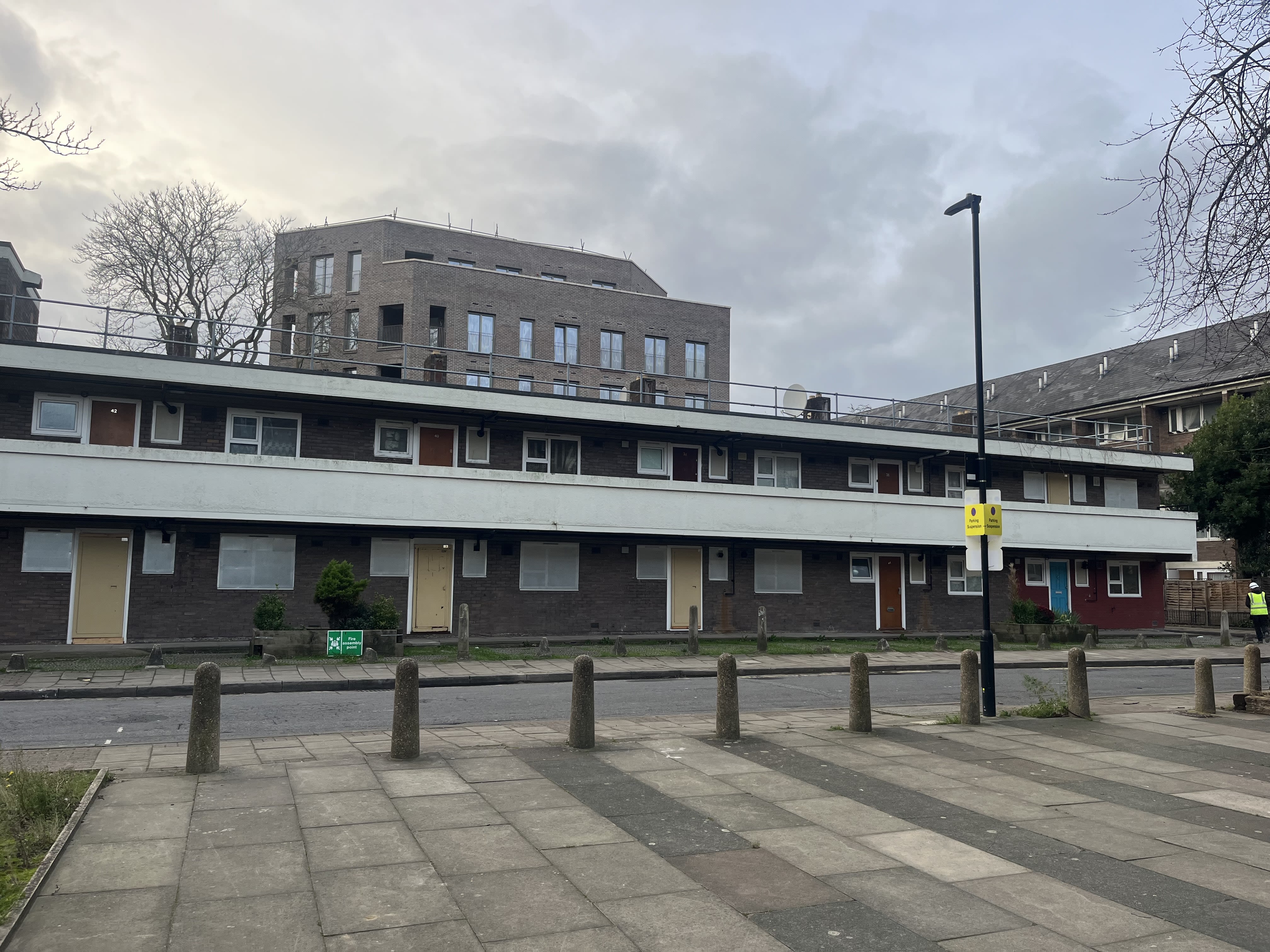
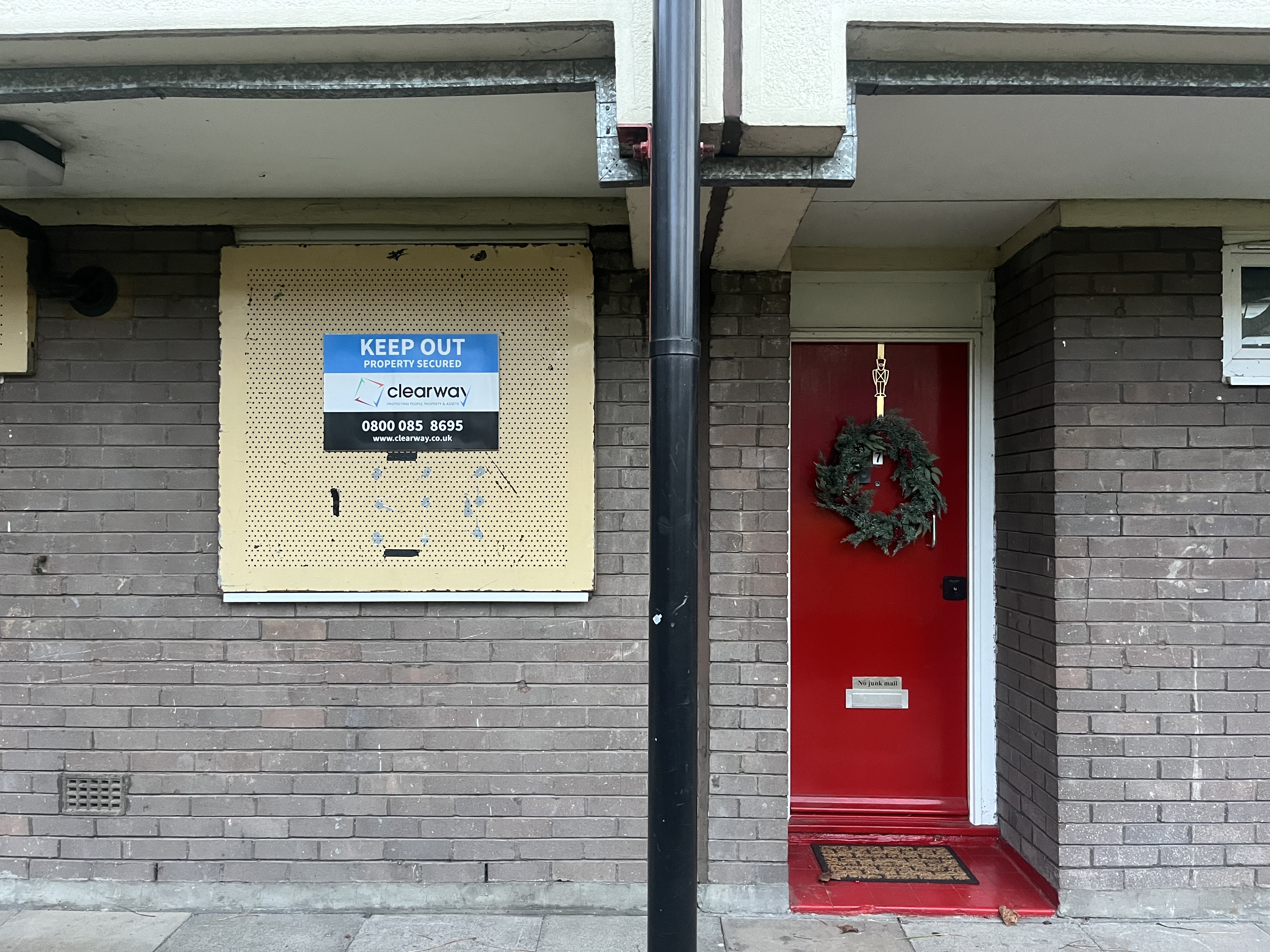
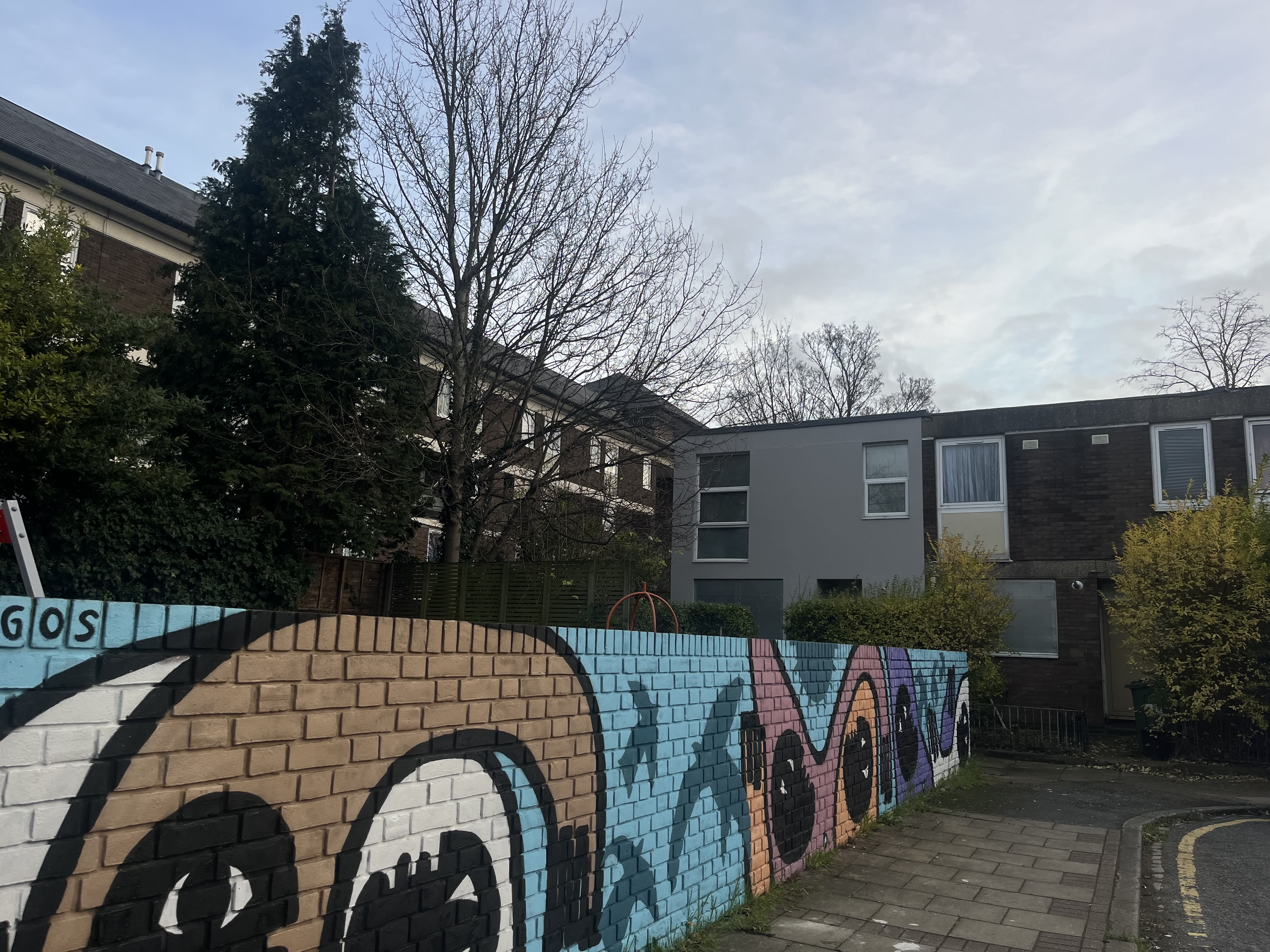
Later that week, Jules showed me around Fenwick with Conor Crooks, 26, another tenant on the estate.
Just five months after they moved in, Conor and his partner say they were told their tenancy wouldn’t be renewed.
Currently undertaking a PhD in Chemistry, Conor said the lack of secure housing has made it almost impossible for him to concentrate on his work. "I don’t know where we would go if we had to leave," he told me. "We would have to uproot not just our home but our whole lives."
By implying they’d have to leave without issuing an official section 21, Conor explained, the council can avoid paying homelessness prevention duties. "It’s not just that they want these houses back, it’s that they want these houses back without doing any of the work they are supposed to," he said.
Lambeth said its Homelessness Prevention Team will always conduct a priority need assessment to determine whether the council owes a main housing duty.
If so, Lambeth Council will consider whether the tenant should remain in their current property as "repurposed temporary accommodation" until long-term accommodation is found.
With every corner we turned, every block we walked past, there were more and more yellow doors.
"We can see with our own eyes, living on these estates, that when people move out, their houses are boarded up and no one moves in there for months, even years, at a time," Conor told me.
"A third of the housing in my little block has just been wiped off the map," he said. "It doesn’t feel very nice living next to a boarded-up house, it feels unsafe and I feel unwelcome in my own home."
One yellow door stood next to a Christmas wreath, another beside a large brick mural. Still, there was love and life. Still, it could all be destroyed.
Jules pointed to one property a couple doors down from her flat. Her parcel was there, in a sort of package-purgatory, placed in what the postman thought was an alcove and boarded up just days later.
I peeked through the keyhole, but I couldn’t see anything package-shaped. Just a few letters and a Labour leaflet.
"By refurbishing flats and leaving them to stand empty, they’re literally hemorrhaging money," Jules said.
She told me Lambeth Council wants to use Fenwick to house those in "highest priority need," but in order to do this, Jules said they’re effectively making hundreds of current tenants homeless.
"I’ve always suffered from depression and anxiety, but in recent months, as this is getting more and more stressful, I’ve had to increase my medication to feel normal again. Not having that housing security makes your whole life feel insecure," Conor said.
Jules, who interrupted her degree in Social Sciences following a diagnosis of Fibromyalgia, was finally ready to return to university. Now, she’s had to extend that interruption even further while she fights for her right to shelter.
"If we didn’t fight for this, then we would already be homeless right now because our original section 21 said that we were meant to move out on April 7th 2024," Jules said. "I wouldn’t have been able to write a dissertation from the street, I don’t know how that would have worked."
Renting with Homes for Lambeth
Some tenants have already faced eviction charges, such as former Green Party councillor Peter Elliott, who lived on Central Hill estate.
Since Lambeth Council bought Peter’s flat back from his landlord in July 2023, Peter’s been sofa surfing, but often returns to the estate he called home for seven years.
"I’ve always lived on estates, and I love the community that you get," Peter said. "For the council to then turn around and say they’re going to demolish the estate, they’re demolishing the community. You can build buildings, but you can’t build the community that goes in them."
After Peter moved out, he said the council refurbished his flat and fitted a new kitchen and bathrooms, but because the property remained empty, he said squatters soon broke in.
One day, Peter returned to his former home and said he fond the door had been knocked down and all the metal stolen from the heating system, rendering any work done by the council completely futile.
"The council is creating a world of problems by not just keeping people in these properties. Scammers and criminals come into the estates to destroy and damage them, and this has an effect on the people that are remaining," Peter told me.
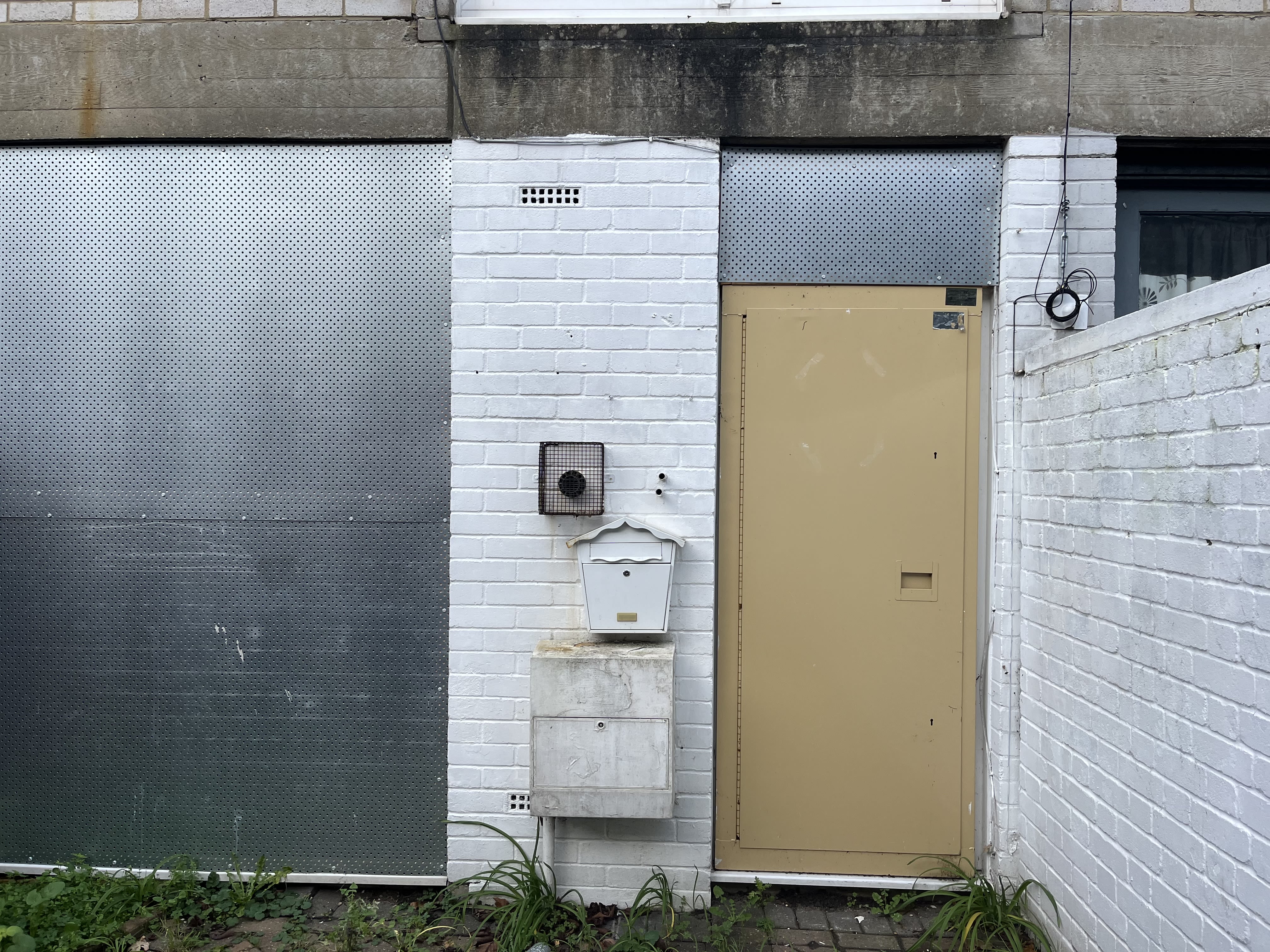
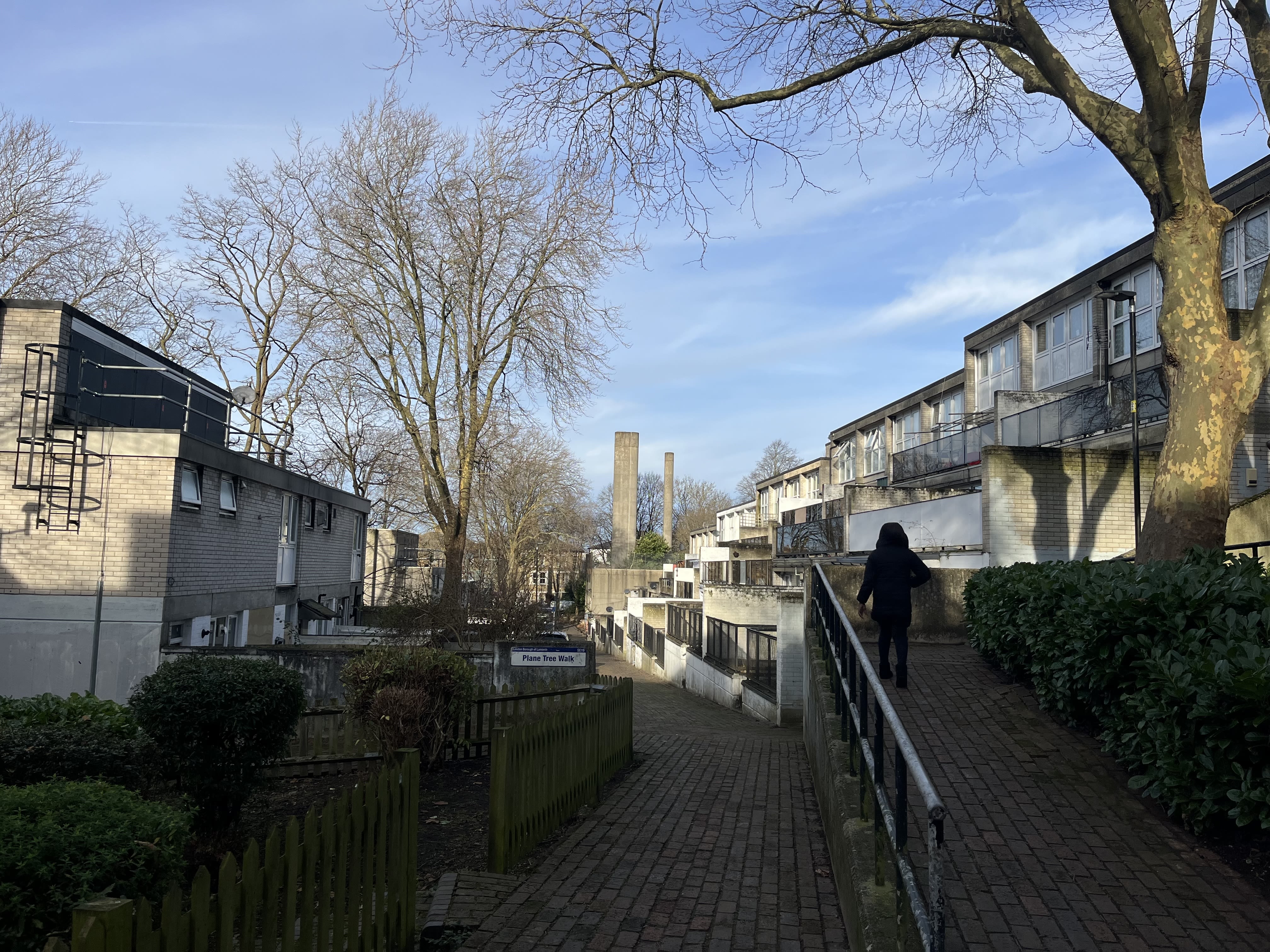
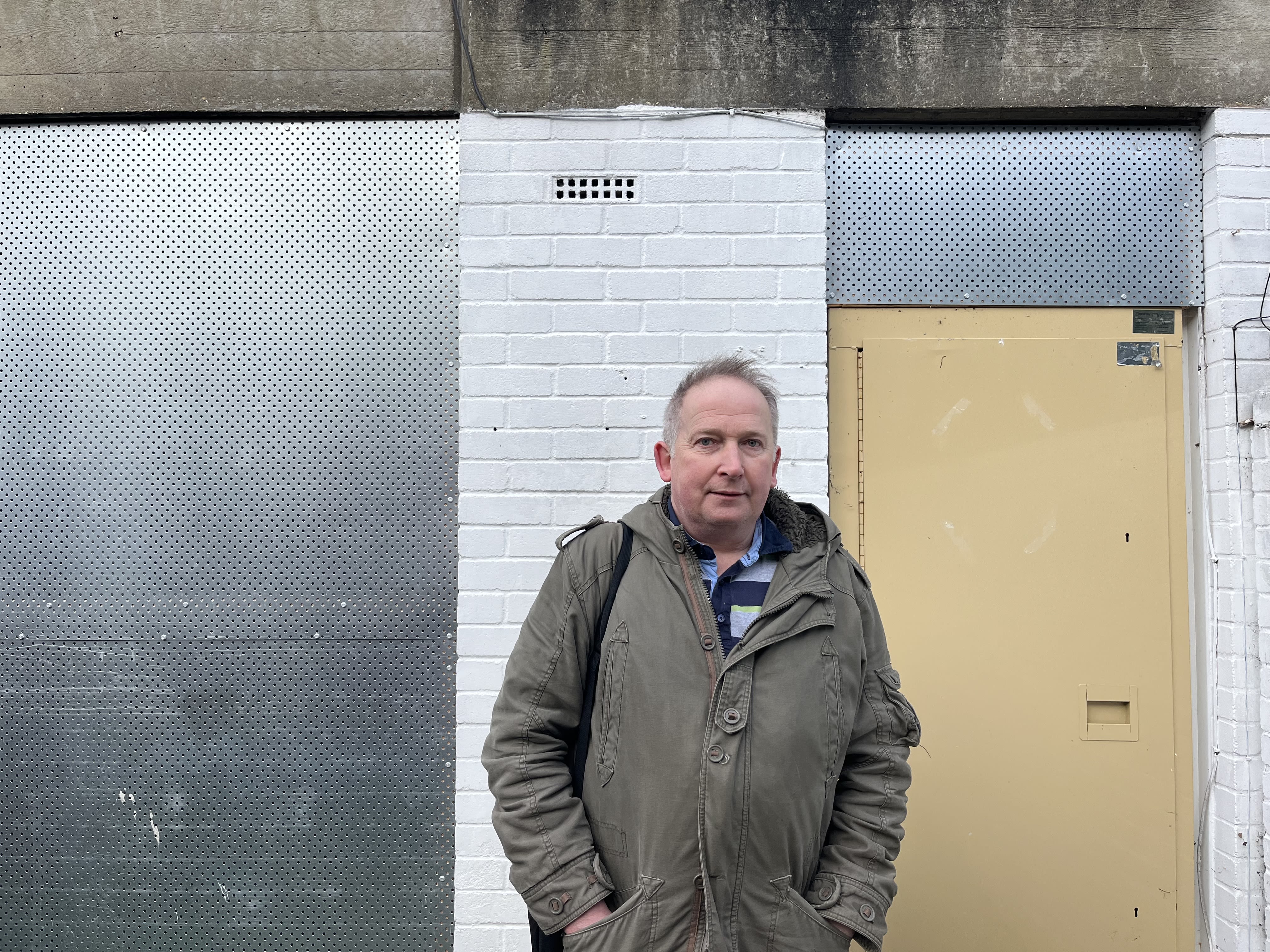
For the tenants of Central Hill, this isn’t an isolated incident. Chair of the Residents’ Association Sabine Mairey said she knows of at least four households who’ve moved in the past year, and their properties are still boarded up.
She said where new tenants have been moved in, it’s mostly those seeking temporary accommodation
"They’re pawns, really, they’re filling a void," Sabine said. "They can be manipulated because they might be desperate for a more permanent place."
"The ideal for the council would be an empty property, but the next ideal is a disempowered, or disenfranchised, body of residents," she continued.
Although Fenwick and Central Hill estate are both undergoing new options appraisals, meaning regeneration has been put on pause while the council re-evaluates its approach, Sabine told me the threat of demolition is always just around the corner.
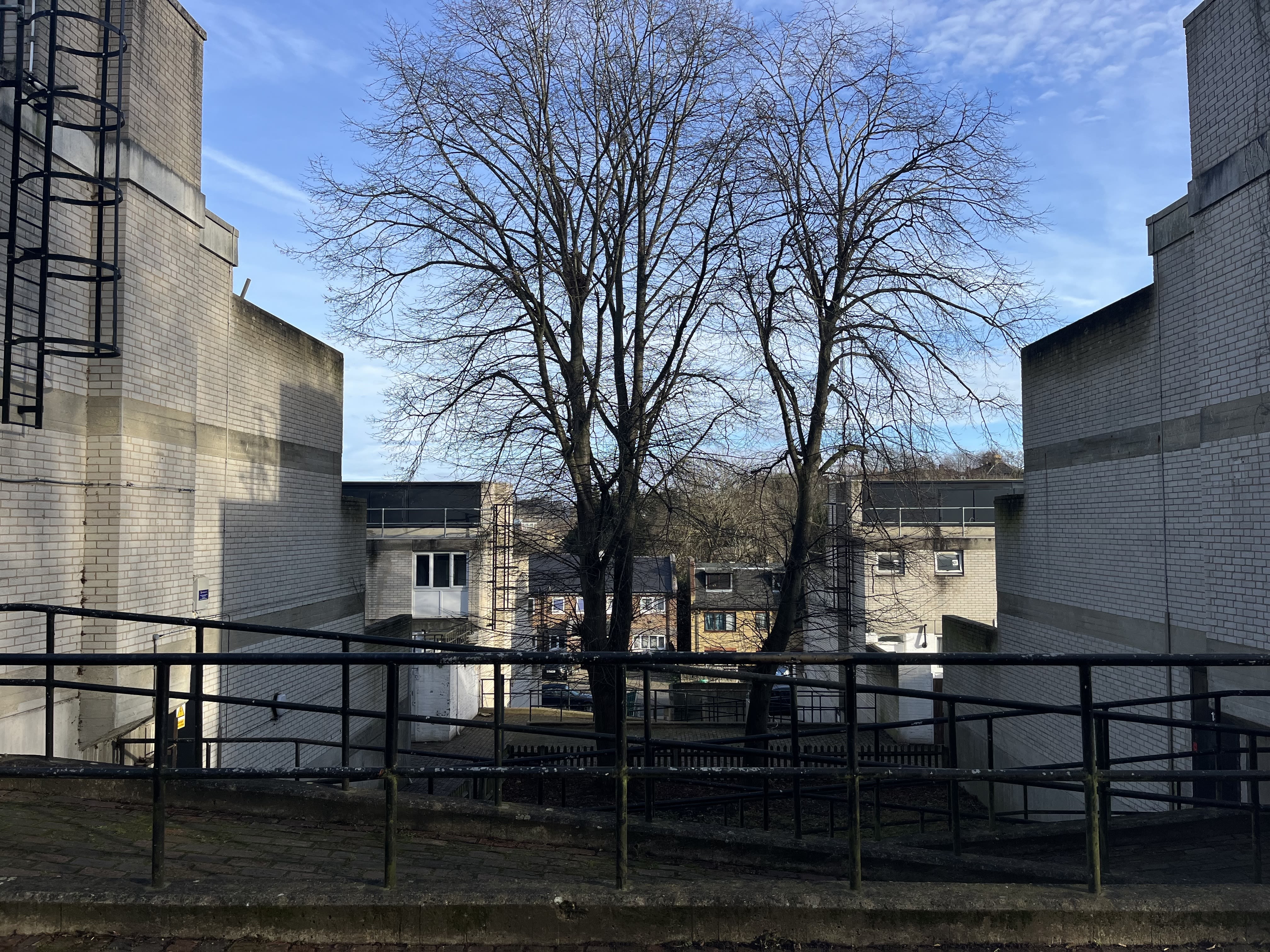
In response to the claims made by tenants across Lambeth's regeneration estates, a Lambeth Council spokesperson said:
"The council has 4,745 homeless households in often unsuitable and expensive temporary accommodation.
"This is unacceptable and unsustainable, with the cost resulting in financial pressure impacting on all council services.
"We need to use all means at our disposal to provide the most disadvantaged and vulnerable families in Lambeth with a safe, decent home.
"These properties have been rented to private tenants, at market rents, on a fixed-term basis. This was only ever intended to be for the short-term.
"We apologise for the impact this decision has on those renting these homes but we now need to use these homes for those with most urgent need for housing."
“It’s stagnant, and sometimes it isn't even stagnant - it’s just barren dry. It’s not like you’re in a cesspit of nasty things happening, it’s just nothing. But it’s always in the forefront of your mind, they don’t remove demolition as an option.”




